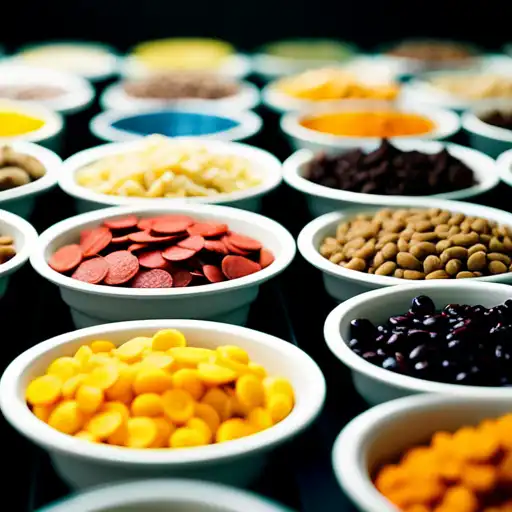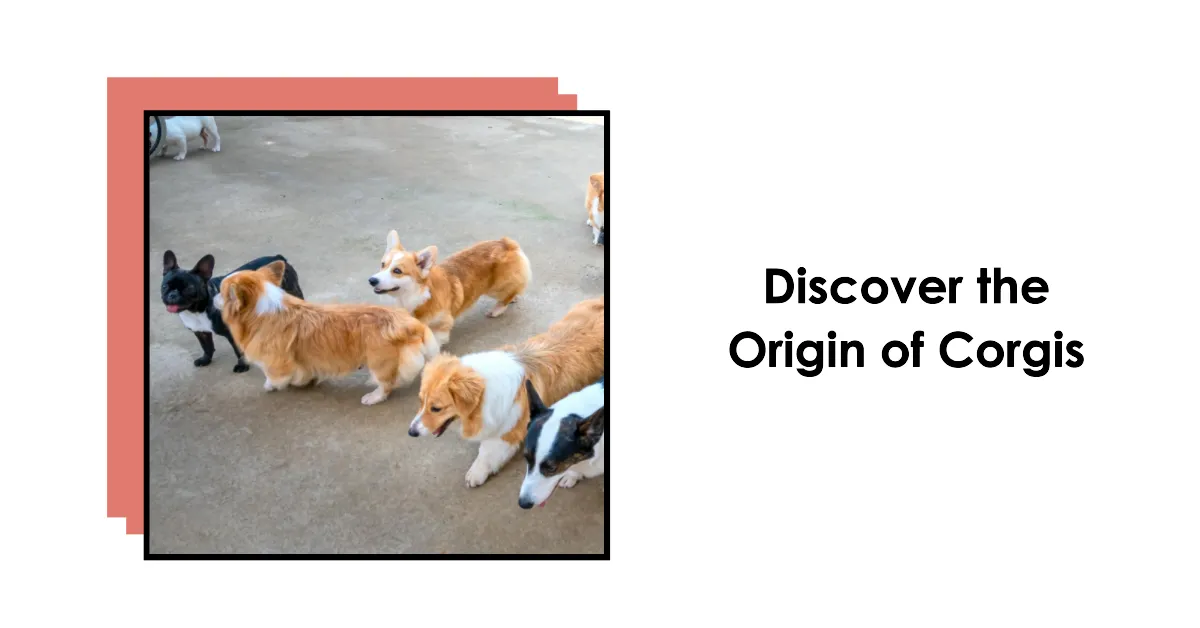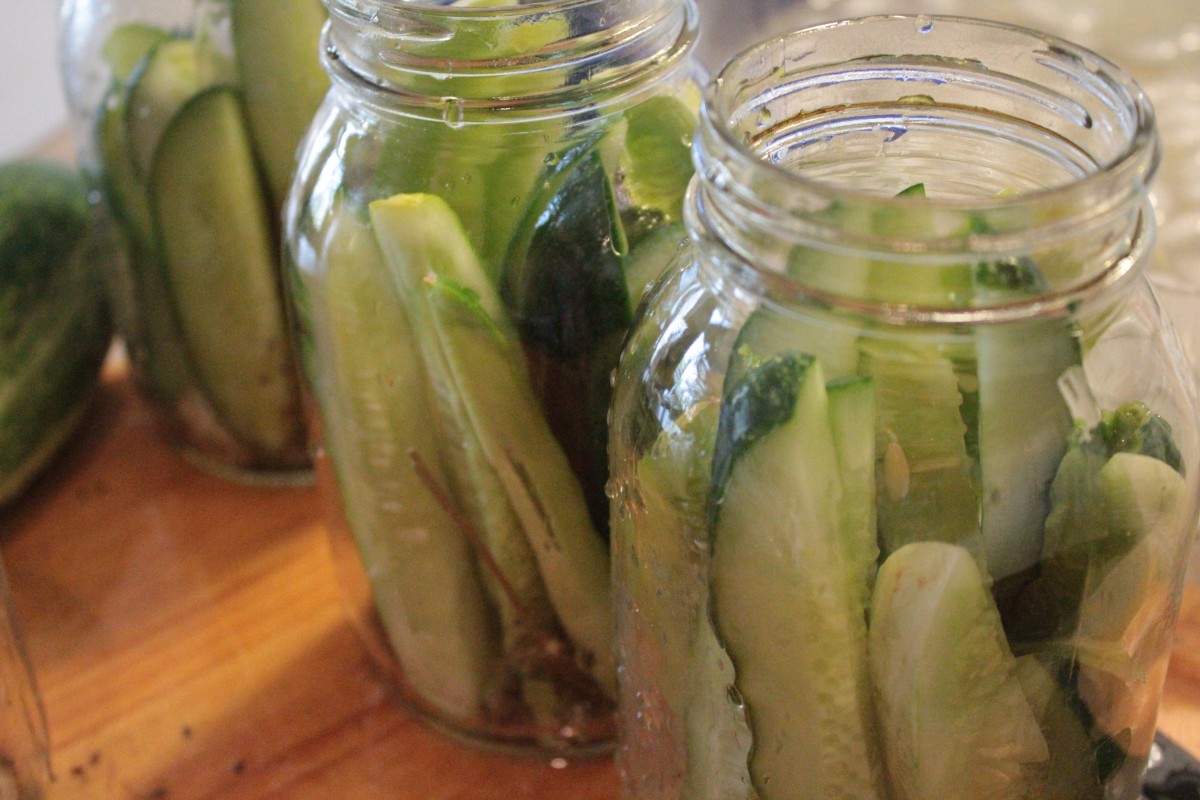Perfect Portion Sizes for Your Corgi

Are you struggling to find the perfect portion sizes for your adorable Corgi? Well, you're in luck! In this guide, we will provide you with all the information you need to ensure your furry friend's safety and well-being.
Understanding your Corgi's unique dietary needs is essential in maintaining their health. By calculating the ideal caloric intake and determining the right amount of protein, you can ensure they receive the nutrition they require.
Additionally, finding the balance with carbohydrates and providing essential vitamins and minerals will further contribute to their overall wellness. Remember, adjusting portion sizes based on their age and activity level is crucial.
So, let's dive in and discover the perfect portion sizes for your Corgi!
Understanding Your Corgi's Unique Dietary Needs
To understand your Corgi's unique dietary needs, consider their age, activity level, and overall health. Corgis have specific dietary requirements that differ from other dog breeds. It's essential to stay informed about the latest corgi diet trends to ensure you're providing the best nutrition for your furry friend.
One common dietary mistake for corgis is overfeeding. Due to their short legs and long bodies, corgis are prone to weight gain, which can lead to various health issues. Another mistake is feeding them human food. While it may be tempting to share your meal with your corgi, certain human foods can be toxic for them.
It's crucial to stick to a well-balanced, high-quality dog food that meets their nutritional needs. By understanding their unique dietary needs and avoiding these common mistakes, you can ensure your corgi stays healthy and happy.
Calculating the Ideal Caloric Intake
Now let's determine the ideal caloric intake for your corgi based on their unique dietary needs. Calculating the ideal caloric intake is essential to ensure your corgi maintains a healthy weight and overall well-being.
To begin, you need to determine your corgi's ideal weight. Consult with your veterinarian to determine the appropriate weight range for your particular corgi. Once you have the ideal weight, you can use calorie counting to determine the ideal caloric intake.
On average, a corgi requires around 30 calories per pound of body weight. For example, if your corgi weighs 25 pounds, their ideal caloric intake would be around 750 calories per day.
However, keep in mind that individual corgis may have different metabolic rates and activity levels, so it's always best to consult with your vet for personalized recommendations.
Determining the Right Amount of Protein
Make sure your corgi is getting the right amount of protein in their diet. Protein is essential for your corgi's overall health and well-being.
To determine the right amount of protein, you should consider their protein requirements. On average, a healthy adult corgi requires about 18-22% of protein in their daily diet. However, this can vary depending on factors such as age, activity level, and any underlying health conditions.
When choosing protein sources for your corgi, opt for high-quality animal proteins like chicken, turkey, or fish. These provide essential amino acids that are necessary for muscle development and repair.
It's important to consult with your veterinarian to ensure your corgi's protein needs are met and to address any specific dietary concerns.
Finding the Balance With Carbohydrates
Now let's talk about carbohydrates and your corgi.
Finding the right balance is key to ensuring their health and well-being. Understanding their carb intake, how to balance it with other nutrients, and being aware of any potential carb sensitivities they may have is crucial in providing them with the perfect portion sizes.
Carb Intake for Corgis
To achieve a balanced carb intake for your Corgi, focus on incorporating the right types and amounts of carbohydrates into their diet. Carbohydrates are an essential energy source for dogs, but it's important to choose the right carb sources for your furry friend. Opt for high-quality, easily digestible options such as whole grains, fruits, and vegetables. These provide essential vitamins, minerals, and fiber while keeping your Corgi's energy levels stable.
Avoid carb alternatives that are high in processed sugars or fillers, as they can lead to weight gain and other health issues. Remember to consult with your veterinarian to determine the appropriate amount of carbs for your Corgi's specific needs. Striking the right balance will help maintain your Corgi's overall health and well-being.
Balancing Carbs and Health
Balance your Corgi's carb intake with their overall health by choosing the right types and amounts of carbohydrates for their diet. When it comes to carb sources, opt for whole grains, fruits, and vegetables instead of processed foods or sugary treats. These provide essential nutrients and fiber while keeping your Corgi's blood sugar levels stable.
Portion control is also crucial in maintaining a healthy balance. Consider your Corgi's size, activity level, and any specific dietary needs when determining the appropriate amount of carbs to include in their meals. Remember, moderation is key. Too many carbs can lead to weight gain and potential health issues, while too few can leave your Corgi lacking energy.
Finding the right balance will ensure their carb intake supports their overall well-being.
Corgis and Carb Sensitivity
Maintaining a balanced diet for your Corgi involves considering their carb sensitivity and finding the right balance with carbohydrates. Corgis are known to be prone to weight gain and diabetes, so it's important to manage their carbohydrate intake to prevent these issues.
When it comes to corgis and diabetes management, it's crucial to choose carbohydrates that have a low glycemic index, as these are slowly digested and don't cause spikes in blood sugar levels. Opt for complex carbohydrates such as sweet potatoes, brown rice, and whole grains.
Additionally, portion control plays a significant role in preventing weight gain. It's essential to measure your corgi's food accurately and avoid overfeeding.
Essential Vitamins and Minerals for Corgis
Ensuring optimal health for your Corgi includes incorporating essential vitamins and minerals into their diet. These nutrients play a crucial role in supporting your furry friend's overall well-being and preventing deficiencies.
Here are some key vitamins and minerals that should be included in your Corgi's diet:
- Vitamin A: Important for healthy vision, immune function, and skin health.
- Vitamin D: Essential for proper bone development and calcium absorption.
- Vitamin E: Acts as an antioxidant, protecting cells from damage.
- Minerals: Corgis require minerals such as calcium, phosphorus, and potassium for healthy bones, teeth, and muscle function.
To ensure your Corgi receives these essential nutrients, consider feeding them a balanced and high-quality dog food that meets their specific vitamin and mineral requirements. Additionally, consult with your veterinarian to determine if any additional supplements are necessary for your Corgi's individual needs.
Adjusting Portion Sizes for Age and Activity Level
When it comes to feeding your Corgi, it's important to adjust their portion sizes based on their age and activity level.
Puppies have different nutritional needs than adult Corgis, and senior Corgis may require smaller portions to maintain a healthy weight.
Additionally, consider how active your Corgi is - a more active dog may need slightly larger portions to fuel their energy levels.
Age-Based Portion Adjustments
Adjusting portion sizes for your corgi's age and activity level is essential for their overall health and well-being. As your corgi grows older, their nutritional needs change, and it's important to adjust their portion sizes accordingly. Here are some age-based portion adjustments to consider:
- Puppies: Puppies have higher energy needs, so they require more frequent and smaller meals to fuel their growth and development.
- Adult dogs: Adult corgis have lower energy needs compared to puppies. It's important to provide them with balanced meals in appropriate portion sizes to maintain a healthy weight.
- Senior dogs: Older corgis may have decreased activity levels and slower metabolism. Adjust their portion sizes to prevent weight gain and ensure they receive the necessary nutrients.
- Active dogs: If your corgi is highly active, they may require larger portion sizes to support their energy expenditure.
Activity Level Considerations
To properly adjust portion sizes for your corgi's age and activity level, consider their specific energy requirements. Activity level considerations are crucial when determining the appropriate portion size for your furry friend.
A corgi with a high activity level will require more calories to fuel their energetic lifestyle, while a sedentary corgi may need a smaller portion size to prevent weight gain. It's important to consult portion size guidelines provided by your veterinarian or pet nutritionist to ensure you're meeting your corgi's nutritional needs.
Remember, overfeeding can lead to obesity and related health issues, while underfeeding can result in nutrient deficiencies and lack of energy.
Tips for Monitoring Your Corgi's Weight
Ensure you regularly monitor your Corgi's weight to maintain their health and well-being.
Here are some tips for monitoring your Corgi's weight:
- Weigh your Corgi regularly: Use a scale specifically designed for pets to track your Corgi's weight accurately.
- Keep a weight journal: Record your Corgi's weight regularly to identify any significant changes.
- Observe their body condition: Look for signs of weight gain or loss, such as a visible waistline and feeling their ribs easily.
- Consult your veterinarian: If you notice any concerning weight changes or have questions about weight management, seek guidance from a professional.
By monitoring your Corgi's weight, you can ensure they maintain a healthy weight, which is crucial for their overall health and longevity.
Frequently Asked Questions
Can I Feed My Corgi the Same Portion Size as My Other Dog?
Feeding differences between dogs matter. Each breed has unique nutritional needs. Corgis, for example, require specific portion sizes to maintain a healthy weight. So, no, you shouldn't feed your corgi the same portion size as your other dog.
How Often Should I Adjust My Corgi's Portion Size as They Age?
As your corgi ages, it's important to regularly adjust their portion size to meet their changing needs. Follow portion size guidelines, considering their activity level and weight. This will help ensure their safety and overall health.
What Are the Signs That My Corgi Is Getting Too Much Protein in Their Diet?
If your Corgi is showing signs like excessive thirst, weight gain, or digestive issues, it may be getting too much protein. Adjust portion sizes accordingly to prevent health problems.
Is It Necessary to Monitor My Corgi's Weight Even if They Appear to Be a Healthy Size?
Monitoring your corgi's weight is crucial, even if they seem healthy. Portion sizes play a vital role in maintaining their well-being. Keep an eye on their weight to ensure they stay within a healthy range.
Can I Give My Corgi Human Vitamins to Supplement Their Diet?
Yes, you can give your corgi vitamin supplements, but it's important to choose canine-specific options. Human vitamins may not provide the right nutrients and could be harmful. Opt for safe and effective choices for your furry friend.











